G7 foreign ministers promise tougher measures against Russia, call out China
Top diplomats from the Group of Seven (G7) advanced economies have vowed to take a more unified stand against Russia and China.
In a communique released on Tuesday, the G7 foreign ministers condemned "Russia’s war of aggression against Ukraine" and called out China to “abstain from threats, coercion, intimidation, or the use of force” in the East and South China Seas.
"We, the G7 Foreign Ministers of Canada, France, Germany, Italy, Japan, the United Kingdom (UK) and the United States of America (US), and the High Representative of the European Union, underline our strong sense of unity as the world navigates grave threats to the international system, including Russia’s continued war of aggression against Ukraine," the G7 communique read following the three days of talks in the Japanese hot springs resort town of Karuizawa.
The G7 communique warned about the “severe consequences” for any use of chemical, biological, or nuclear weapons by Russia in the ongoing conflict in Ukraine, and pledged that those supporting the Kremlin’s war effort there would face “severe costs.”
“There can be no impunity for war crimes and other atrocities such as Russia’s attacks against civilians and critical civilian infrastructure,” the communique said.
“We remain committed to intensifying sanctions against Russia, coordinating and fully enforcing them,” the ministers said, and would continue to support Kiev “for as long as it takes.”
The US and its allies have already sent Kiev tens of billions of dollars worth of weapons, munitions and military equipment since Russia began its special operation in Ukraine last year.
The communique also stressed the importance of free and open navigation in the Indo-Pacific waters, while calling on China to uphold its commitments and act responsibly.
"We remind China ... to abstain from threats, coercion, intimidation, or the use of force. We remain seriously concerned about the situation in the East and South China Seas. We strongly oppose any unilateral attempts to change the status quo by force or coercion. There is no legal basis for China’s expansive maritime claims in the South China Sea, and we oppose China’s militarization activities in the region," it said.
"We reaffirm the importance of peace and stability across the Taiwan Strait as an indispensable element in security and prosperity in the international community," it added.
Chinese Foreign Ministry spokesman Wang Wenbin condemned the statement, saying the G7 foreign ministers had “rudely interfered in China’s internal affairs, maliciously slandered and smeared China.”
“The statements were filled with arrogance, prejudice, and sinister intentions to suppress China,” he said during a press conference in Beijing, adding that China made a “strong demarche to the host Japan.”
The G7 communique also criticised North Korea over its nuclear and ballistic missile programs.
“We demand North Korea refrain from any other destabilizing or provocative actions, including any further nuclear tests or launches that use ballistic missile technology,” the communique emphasized while adding that future actions by Pyongyang “must be met with a swift, united and robust international response, including further significant measures to be taken by the UN Security Council.”
“It is critical that sanctions be fully and scrupulously implemented by all states and remain in place for as long as North Korea’s WMD (weapons of mass destruction) and ballistic missile programs exist,” the G7 ministers said.
North Korea has been developing its nuclear missile capabilities -- unveiling new, smaller nuclear warheads, testing of a nuclear-capable underwater attack drone, and firing an intercontinental ballistic missile reportedly capable of striking anywhere inside the United States -- in response to the US-led threats and military activities on the Korean Peninsula.
Finally, the G7 communique also called for "collective action to address global challenges, including climate change, pollution, loss of biodiversity, health, and food and energy security, and to uphold and reinforce the free and open international order based on the rule of law, respecting the United Nations (UN) Charter ... to build a better, more prosperous, and more secure future."
Over dozen Palestinians killed in 46 building collapses across Gaza
Routine IRGC drills rattle Israel as military chief calls CENTCOM commander: Report
Australia trials Israeli weapon system ‘combat-proven’ in Gaza genocide: Report
Pakistan’s Field Marshal Munir awarded Saudi Arabia’s King Abdulaziz medal
Lebanese army uncovers, dismantles Israeli spying device in south
CIA undermining Trump’s Ukraine plan: Ex-US national security adviser
Ten million Persian manuscripts donated from India to institute in Iran
VIDEO | Press TV's news headlines


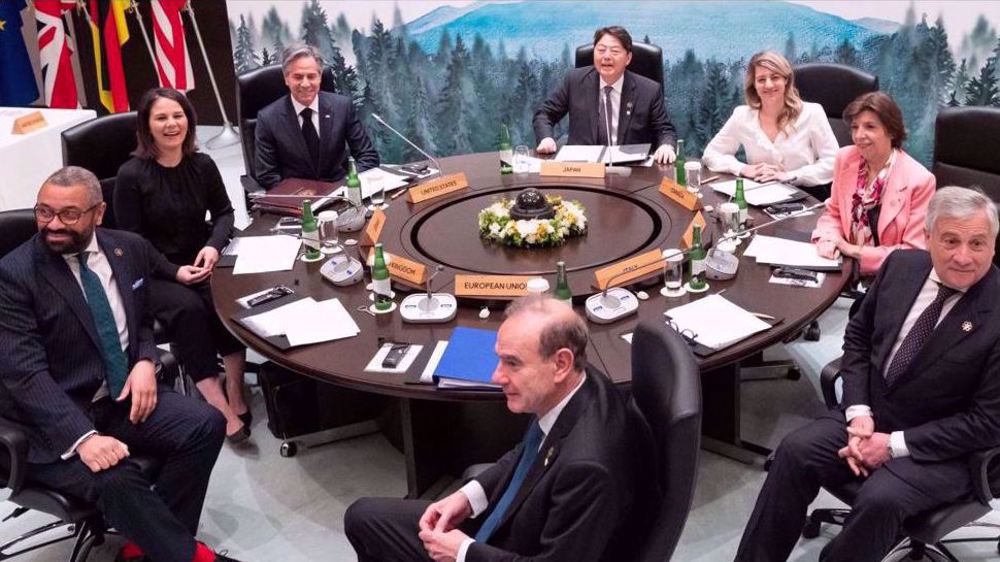
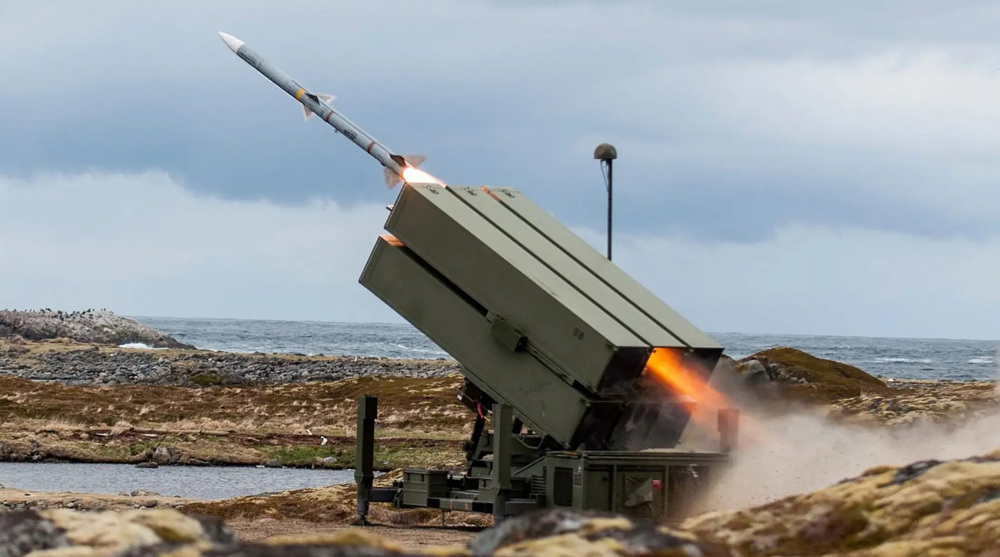
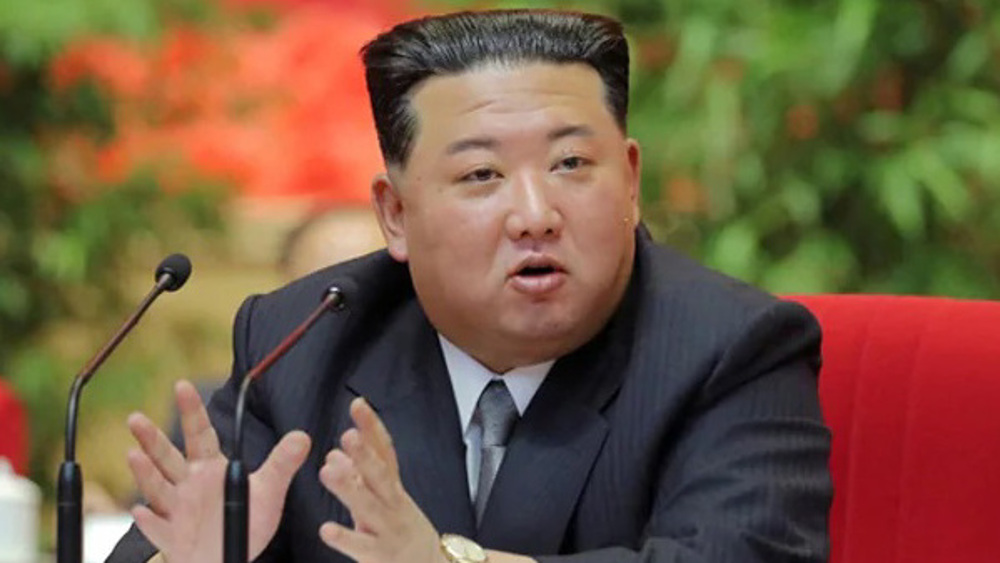
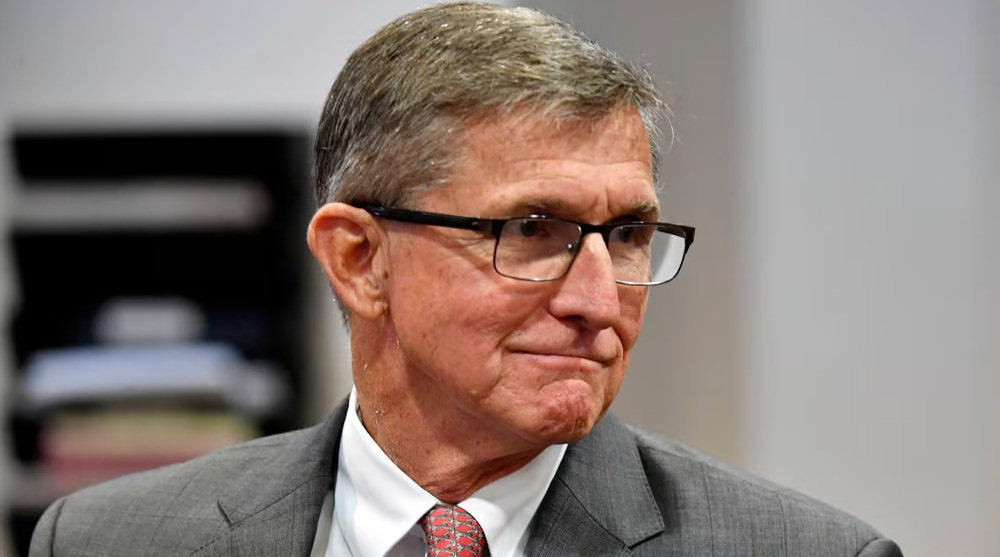







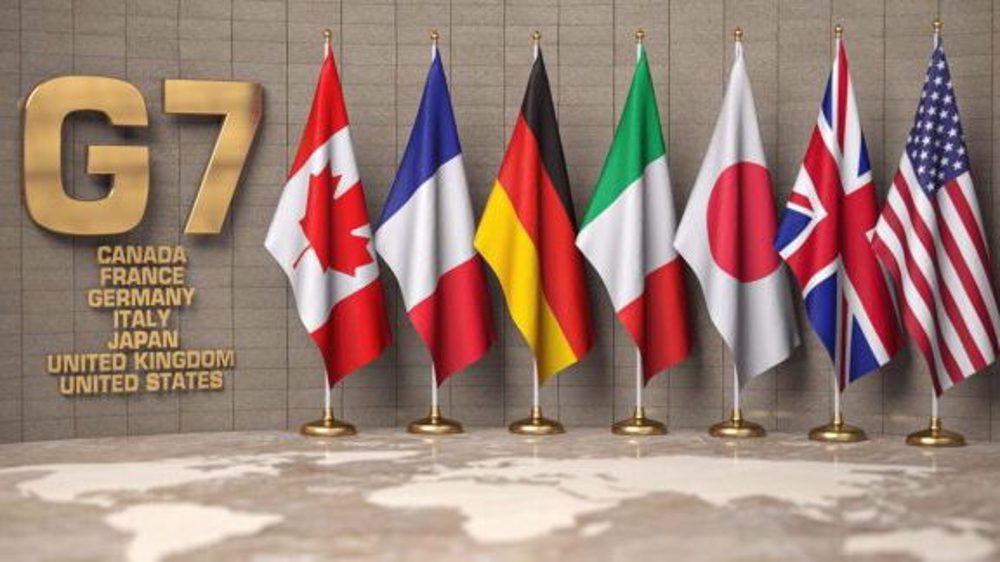
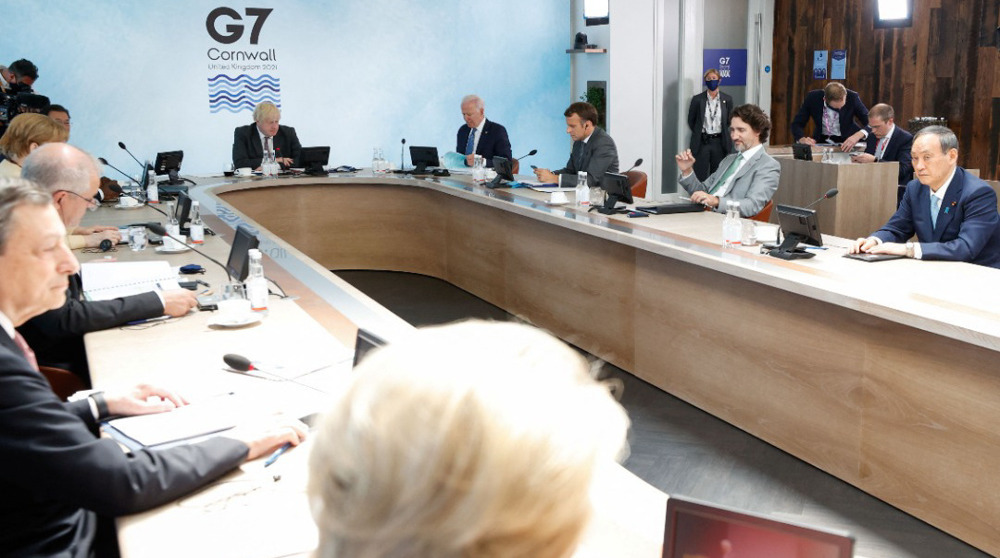



 This makes it easy to access the Press TV website
This makes it easy to access the Press TV website